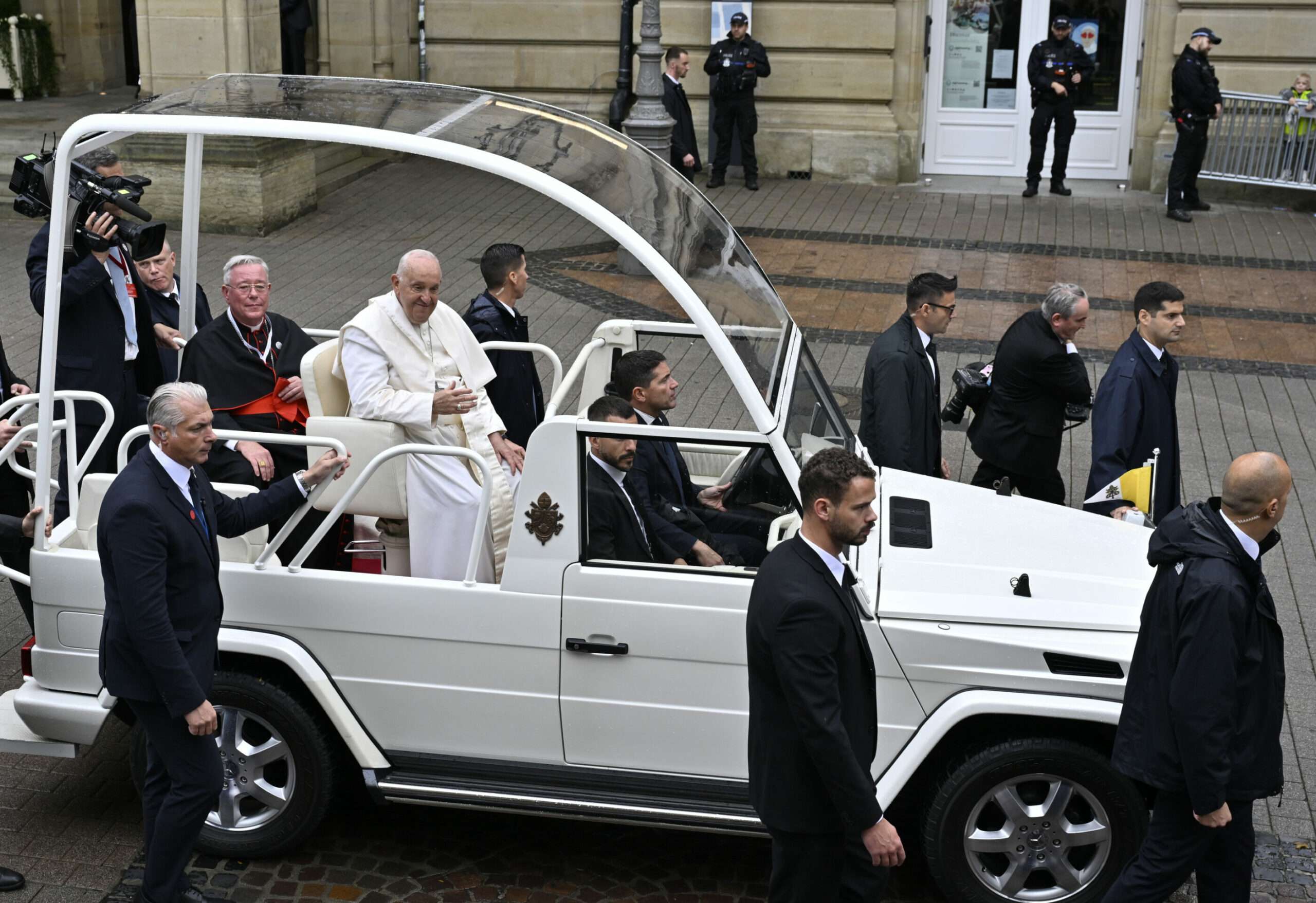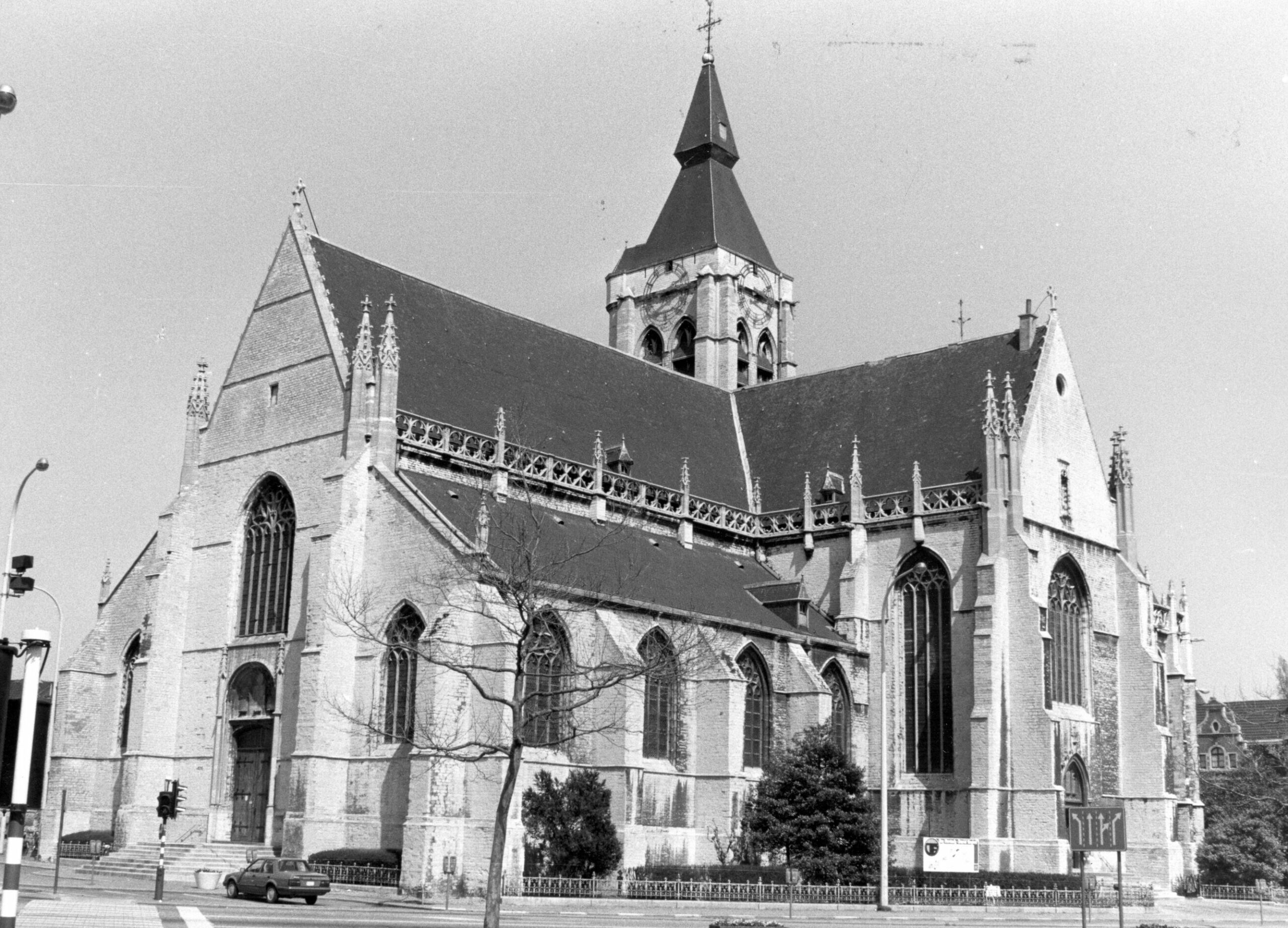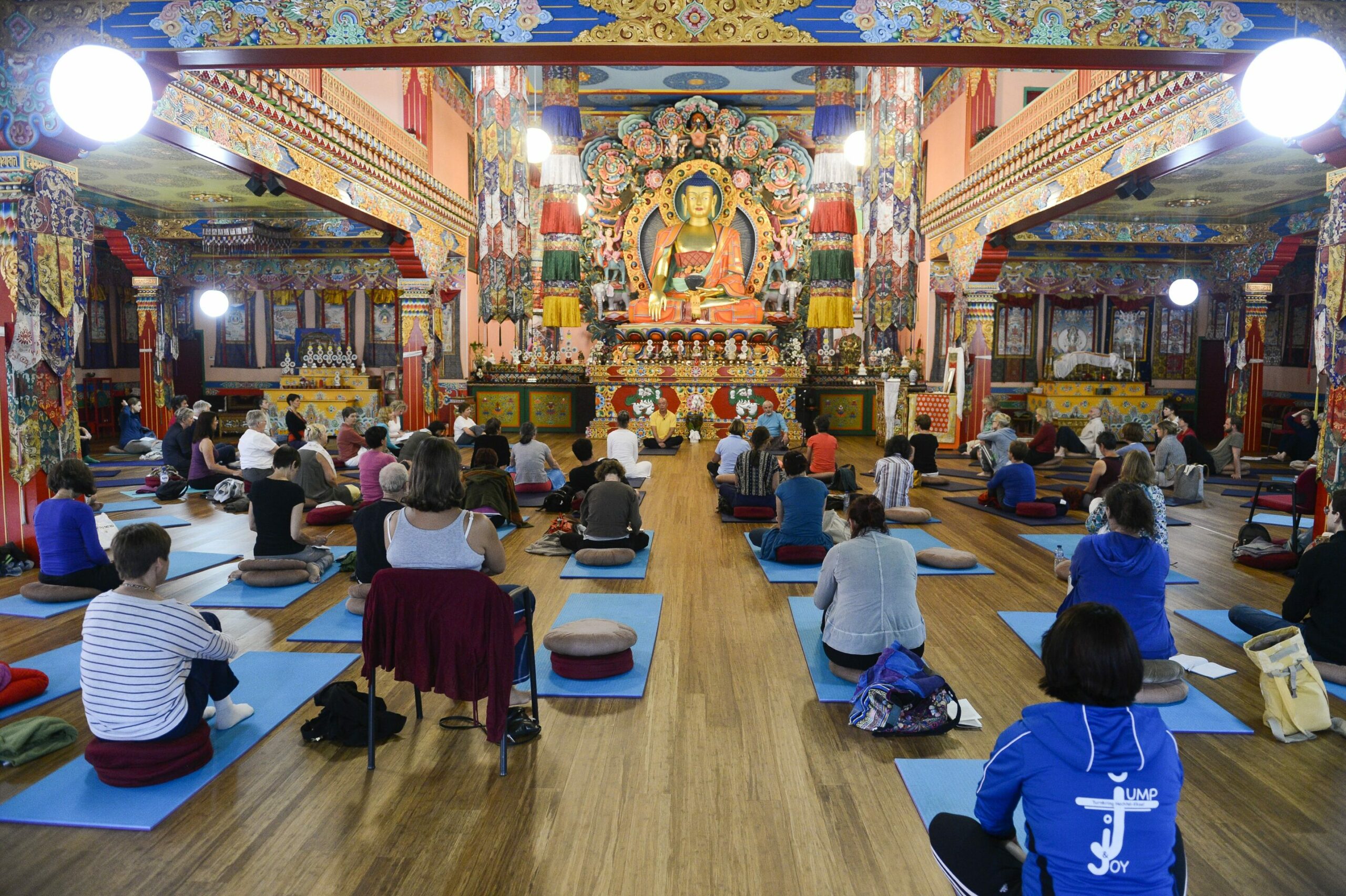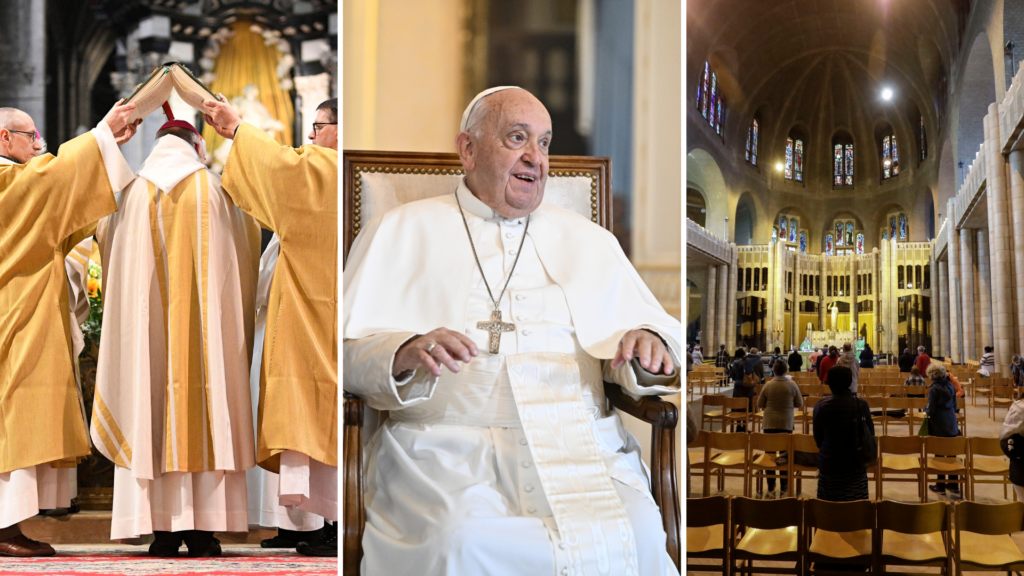Secularism, shifting demographics, and a string of sexual abuse scandals linked to the Church have all contributed to the decline of Catholicism in Belgium.
When acclaimed Flemish author Kristien Hemmerechts released her new book Van ver komen (‘Come From Far Away’ in English) in early 2024, she spoke to the media about her return to the Catholic Church after years of near-atheism.
But Hemmerecht’s declaration of faith is not representative of a nationwide sentiment, say experts. "Openly calling yourself Catholic is a risky move these days," says Belgian canon law scholar Rik Torfs, also a former Senator for the Christian Democratic and Flemish party (CD&V). "The general mood of society today is as far away from the church as it has ever been," Torfs told The Brussels Times.
Before even setting foot in the country, Pope Francis’ visit to Belgium has stirred debate. In a statement, the Vatican said the Pope’s visit promotes peace "at a time when the continent risks being pulled into conflict again."
The visit also coincides with the birthdays of Catholic universities UCLouvain and KULeuven. Both were founded in 1425 and will celebrate their 600th birthdays next year. "Leuven and Louvain are two of the oldest universities in the world which are still Catholic," says Torfs. "The church wants to keep these universities in the fold at a time when belief and spirituality are at a low point."

Pope Francis rides the popemobile through Luxembourg City, Thursday 26 September 2024. Credit: Belga
A steady decline in Belgium
A report issued by the Catholic Church in 2023 found that 50% of Belgium’s roughly 12 million population identified as Catholic in 2022 — down from 53% in 2017. Just under 9% attend Mass at least once a month.
Attendance at sacraments (Catholic rituals such as baptisms, confirmations and weddings) fell sharply between 2017 and 2022. In the same time period the number of diocesan priests, religious priests, permanent deacons, and parishes also fell.
But the numbers only tell part of the story. "The church bases a lot of its numbers on people that formally choose to exit the church [debaptism]," Patrick Loobuyck, religious scholar and moral philosopher at the University of Antwerp, told The Brussels Times. "At first glance, Flanders and its institutions might still seem to be Catholic. But take a closer look and you can clearly see the enormous influence of secularisation within society, and the Church’s loss of power.”

Our Lady of Vilvoorde church (Flemish Brabant, Belgium). The church was built in 1384. Credit: Belga
Funding is also an issue. While the Federal Government pays the salaries and pensions of clergy, municipalities pay for the upkeep of churches. But the distribution of funds is no longer reflective of the current situation in Belgium, which today recognises eight religions.
The Catholic Church still receives more than 70% of all subsidies – a disproportionate amount given its size today. "Budgets allocated to the Catholic Church are not adjusted in line with actual demographics. The number of faith workers only declines through retirement,” explains Niels de Nutte, a historian in atheism, secularism, and humanism at the Dutch Vrije Universiteit Brussel (VUB).
Religion and divisions
The regional divisions that mark Belgium's political and social realities are also evident in religious affairs. The comparatively conservative region of Flanders retained its cultural connection to the Catholic Church longer than metropolitan Brussels and Wallonia, which were traditionally more receptive towards leftwing currents and secularisation.
Belgian society is based on the three pillars of Catholicism, liberalism and socialism. And whilst Catholicism is not entirely defunct, the country today is undoubtedly secular: the Church and State are independent, with religion kept separate from decisions taken in everyday life, de Nutte explains.
Most of the country’s institutions – schools, hospitals and care homes – were founded on Catholic ideologies. But most of the people that use those institutions, particularly schools, are no longer Catholic themselves. According to de Nutte, three-quarters of primary and secondary schools are still Catholic in Flanders, along with a handful of universities. But only 11-12% of the population is practising Catholic – though the figure is likely overstated.
Those that "practise" Catholicism, in reality, attend mass around once per month. Many more – around half of the population – still define as Catholic but don't actually practise. Though these "cultural Christians" might get married in a church, they don’t actually attend. "In the US, you might call these people ‘indifferents’ – people that do what their parents did but no longer believe in it."
Parents also struggle to transmit religious faith to their children. "Even if children go to Catholic schools, even if they are baptised, even if they have two hours of Roman Catholic lessons per week, people rarely succeed in transmitting Catholicism to their kids," says Loobuyck. "The fact remains that for young people the Church is something really strange."
It’s not just wider cultural shifts that are moving people further from the Catholic Church. Many under-30s have grown up witnessing a string of high-profile sexual abuse scandals in recent years that have tarnished the Church’s reputation worldwide. In Belgium, the documentary broadcast by VRT ‘Forgotten by God’ (Godvergeten) caused further fury among the general public. "Belgium’s sexual abuse scandal certainly catalysed Catholicism’s slow death," says Torfs.
Victims of the Church have been invited to meet the Pope in private during his visit this week. But for many, it is unlikely to make a difference to the sway of public opinion.

With the most recent addition of Buddhism as a recognised religion, Catholicism no longer takes precedence in Belgian society. Credit: Belga
The Pope’s purpose
Pope Francis, then, is visiting a country where public opinion is largely ambivalent or negative towards the Church he heads. It is perhaps for this reason the Vatican has opted to cover topics during the visit that won’t cause any friction between the pontiff and those receiving him, such as migration and climate. "These are topics where the Pope is not at odds with progressive secular people of Belgium," says Torfs.
But despite being indisputably more liberal today than in generations past, the debate in Belgium is still not settled on issues such as abortion, same-sex marriage and euthanasia, in which the Church represents a more conservative position. "Belgian society is no longer Catholic, but it is not as secular as it could be," says de Nutte. "It’s a polarised society, similar to other European societies."
Speaking to journalists earlier this week, Vatican spokesperson Matteo Bruni said that while secularisation is an issue in Belgium, he hoped the Pope’s words can "speak to the heart of Europe" in light of "the role it wants to play in the world in the near future."
The visit has certainly stirred excitement among religious communities in Belgium. It has also been covered extensively by both local and international media. And while the Pope is ostensibly visiting to honour the country’s oldest Catholic institutions, its other motive – to reinvigorate the faith – seems less likely to succeed. "Secularisation is a very strong social process that won’t change with the visit of the Pope," says Loobuyck. "People will pay attention because of news coverage. But it will not change anything."

